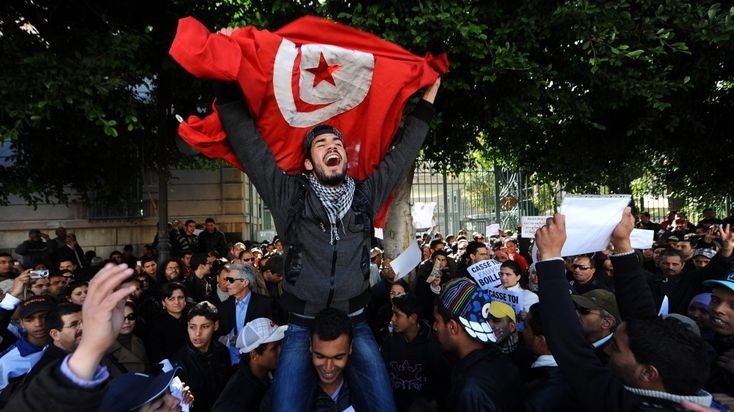The historic Arab Spring that brought about political revolutions and protests in some Arab states was influenced by the actions of a 26 years old Tunisian roadside seller by the name Mohamed Bouazizi.
When Mohamed Bouazizi on December 17, 2010, put a match on himself which claimed his life on January 4, 2011, he probably was unaware that his action would spark a revolution in Tunisia that would be known as the Jasmine Revolution, which ended up influencing the Arab Spring.
Mohamed Bouazizi was a Tunisian roadside fruits seller whose self-immolation in the wake of being harassed by the Tunisian police catalyzed the Jasmine Revolution in Tunisia and motivated several revolutions and protests in the Middle East and North Africa known today as the Arab Spring.
Mohamed Bouazizi’s life was characterized by monetary battles. At age three he lost his dad, and by age 10 he was already taking odd jobs and making sales of vegetables from a cart to support his mother and siblings. After leaving High school without graduating, he looked fruitlessly for a good-paying job but did not find any. He settled as a roadside seller which became progressively disappointing as it produced little pay while presenting him to badgering from cops and market inspectors, who frequently requested pay-offs.
On December 17, 2010, a portion of his products was seized, asserting that he did not have the fundamental license to sell there. During the encounter, he was embarrassed and even got slapped by a female cop.
Infuriated, Bouazizi went to the governor’s office to express his plight, yet he was denied a conference with the governor. Fed up with everything, he stood outside the governor’s office and put a match to himself. He died weeks later from severe burns.
Bouazizi’s ill-treatment by authorities immediately turned into a point of convergence for public resentment, and his battles with underemployment and defilement came to be viewed as prominent trouble faced by many Tunisians, particularly youngsters.
By the time Bouazizi kicked the bucket on January 4, 2011, fights had spread all through Tunisia, and resistance bunches had started to request the expulsion of the bad and dictatorial government led by Pres. Zine al-Abidine Ben Ali, who has held power since 1987. The government attempt to stop the protests by employing violence was condemned globally, and when it offered concessions the people rejected it.
10 days after Bouazizi’s death, Pres. Zine al-Abidine Ben Ali had to leave Tunisia as demonstrators walked in Tunis, with a large number of them conveying signs and pennants with Bouazizi’s picture.
Following the ousting of Ben Ali, Bouazizi was commended as a legend of the movement for democracy in Tunisia. Therefore, the Tunis main square was renamed after Bouazizi in February 2011. The success of the Jasmine Revolution led other Arab nations in the Middle East, and North Africa into revolt against their oppressive leaders. The birth of the Arab Spring.
Read More: Buhari’s Presidential Speech
Read More: The Government of Nigeria
24/7 UPDATES ON OUR WHATSAPP TV, JOIN NOW
Follow Us on Facebook – @2709Updates; Instagram – @2709Updates; X – @2709Updates;
Discover more from 2709 Updates
Subscribe to get the latest posts sent to your email.





